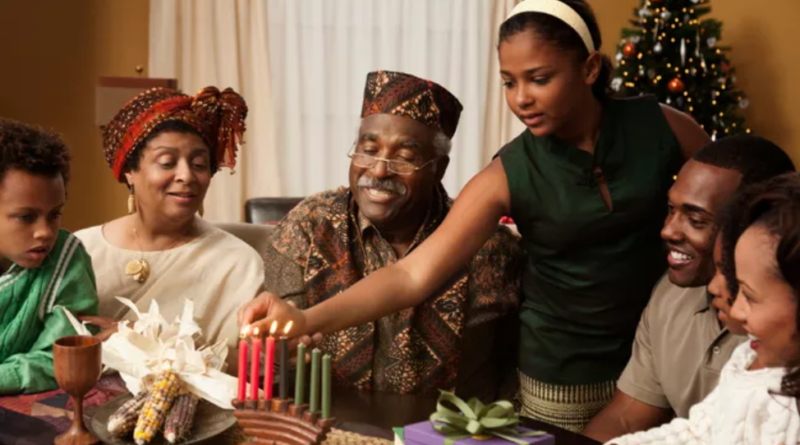The Beginner’s Guide To Celebrating Kwanzaa
This holiday season, many African Americans are opting out of the traditional Christmas celebration to commemorate Kwanzaa, which begins on Dec. 26, 2023, and ends on Jan. 1, 2024.
A 2012 study from Public Policy Polling found that 12.5 million Americans primarily celebrate Kwanzaa during the holiday season. With the rise of social media and young folks gaining more knowledge about their heritage over the last decade, it’s safe to say that that number has drastically increased since then.
The holiday has also been getting it’s fair share of mainstream attention. In 2015, Barack and Michelle Obama shared a heartfelt message about Kwanzaa, sharing”
“Michelle and I extend our warmest wishes to families across the country celebrating Kwanzaa this holiday season. And in the spirit of the season, we reflect on the blessings of the past year and commit to building a brighter future for all our children. As families, friends, and neighbors come together today to light the Kinara, our family sends our best wishes for a happy and healthy new year.”
Looking to celebrate Kwanzaa this holiday season? Check out our Beginners Guide To Celebrating Kwanzaa below.
When Is Kwanzaa?
Kwanzaa is celebrated from December 26 through January 1, with each of the seven days focusing on one of seven core values, or Nguzo Saba
What’s the significance of Kwanzaa?
Kwanzaa is a holiday invented in 1966 by Maulana Karenga through which African Americans can connect with their heritage and culture. It’s a festive celebration of family, life, culture and community.
Is there food?
According to Taste Of Home, the foods with significant symbolism are during the Kwanzaa season are black eyed peas and collard greens. While black eyed peas symbolize good luck, collard greens represent fortune.
What are the 7 days and principles of Kwanzaa?
The seven days of Kwanzaa (known as the Seven Principles of Kwanzaa) are: Umoja (Unity), Kujichagulia (Self-determination), Ujima (Collective Work and Responsibility), Ujamaa (Cooperative Economics), Nia (Purpose,) Kuumba (Creativity).
What About Gifts?
Gifts are still in the picture at Kwanzaa! According to The Chicago Defender, gifts exchanged for Kwanzaa should go hand-in-hand with the holiday’s principles, in order to celebrate self-determination and achievements.
In Kwanzaa: A Celebration of Family, Community, and Culture, Kwanzaa founder Karenga lays out guidelines for gift-giving:
- Children should be the main gift recipients
- Gifts should be exchanged based on commitments made and kept
- Gifts aren’t mandatory, nor should they be excessive
Gifts can be exchanged among all family members at Kwanzaa though. In the spirit of Kuumba, many people opt for handmade gifts to share at the holiday. If your creative energy isn’t there, inexpensive gifts like candles, photo albums, beaded jewelry, art, and more from Black-owned businesses, of course, are suggested.
Here’s a list of Black businesses to get a jump start on your Kwanzaa shopping.
Get the latest news 24/7 on The Black Information Network. Listen now on the iHeartRadio app or click HERE to tune in live.

